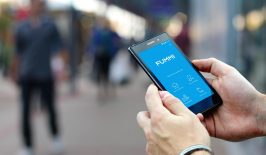Can digital tech make your coffee even tastier? The US startup Bext360 is banking on the blockchain to increase fairness and accountability in the coffee business.
Whether cappuccino, espresso, filter or Turkish: its freshly roast aroma helps improve people’s morning mood all over the world. Twelve kilos of coffee are consumed per year per person worldwide, according to the International Coffee Organization (ICO). But despite drinking so much of it, we consumers tend to know very little about the origin of our favourite beans. At the same time, the farmers who grow the coffee plants are often small-holders, many of whom, according to the World Bank, live on less than 2 USD a day – rarely receive any information about where their beans end up.
But thanks to blockchain technology, successfully tracking a supply chains is not as hard as it used to be, with a whole range of different companies working in different fields to try and help change the way that we connect with commodities and goods: like Provenance, the blockchain platform that lets you trace the supply chain of over 200 different products, and the nonprofit BitGive, where you can make charity donations in Bitcoin and trace your money all the way from your wallet to the charity project in question.
Joining them now is Bext360, a Denver-based startup that’s using blockchain technology to make coffee supply chains more transparent and improve the profits and the lives of coffee-growing communities. For their first pilot program, the startup has partnered with Coda Coffee, a coffee roaster also based in Denver, and Great Lakes Coffee, a Uganda-based coffee exporter to create a blockchain-traceable supply chain from Africa to America.
The process starts at the source, where a robotic device is used to analyse the farmers’ harvests and assess their quality. The farmers are paid different prices according to the size and ripeness of the beans: the bigger and riper beans receive a higher price. Price is negotiated between buyer and farmer and payment carried out via smartphone, which cuts out any middlemen. The farmers thus receive a fair price and are instant payment for their produce. The information that the machine provides also helps both the wholesalers and the roasters, as they can learn more about the taste of the different beans and adjust them to produce certain tastes.
Better information, more conscious decisions
Information about where the beans came from, their quality, and who paid what for them is then is then inputted into Bext360’s “bext-to-brew” platform which is built on blockchain technology. Customers who buy the beans can see the journey of the coffee by scanning the unique QR code featured on the packaging, along with information about the community projects that their purchase is supporting.
“A lot of people put information on their bags that they haven’t personally verified,” said Tommy Thwaites, co-founder of Coda Coffee to the Wall Street Journal. “This allows the customer, right there, on demand, to trace their coffee back to the farmer.”
Traditionally, certifying the different stages of a supply chain has been a costly and time-consuming business – involving many people and piles of paperwork. Bext360 uses “tokenisation technology” to streamline the whole process. The coffee cherries are assigned tokens when they enter the supply chain, and new tokens are created to represent the beans at each step of the supplychain: from transportation, to roasting and wholesale.
For more about the project, check out the video below.



